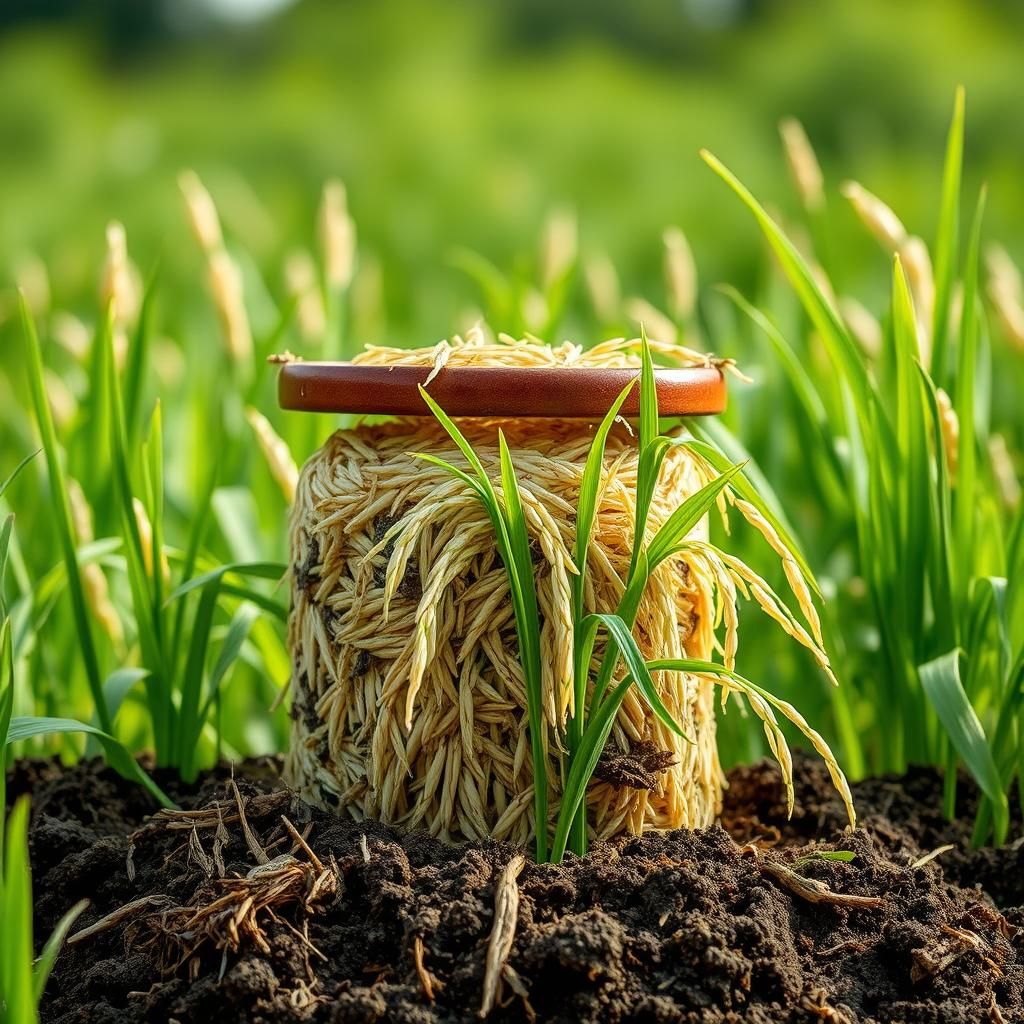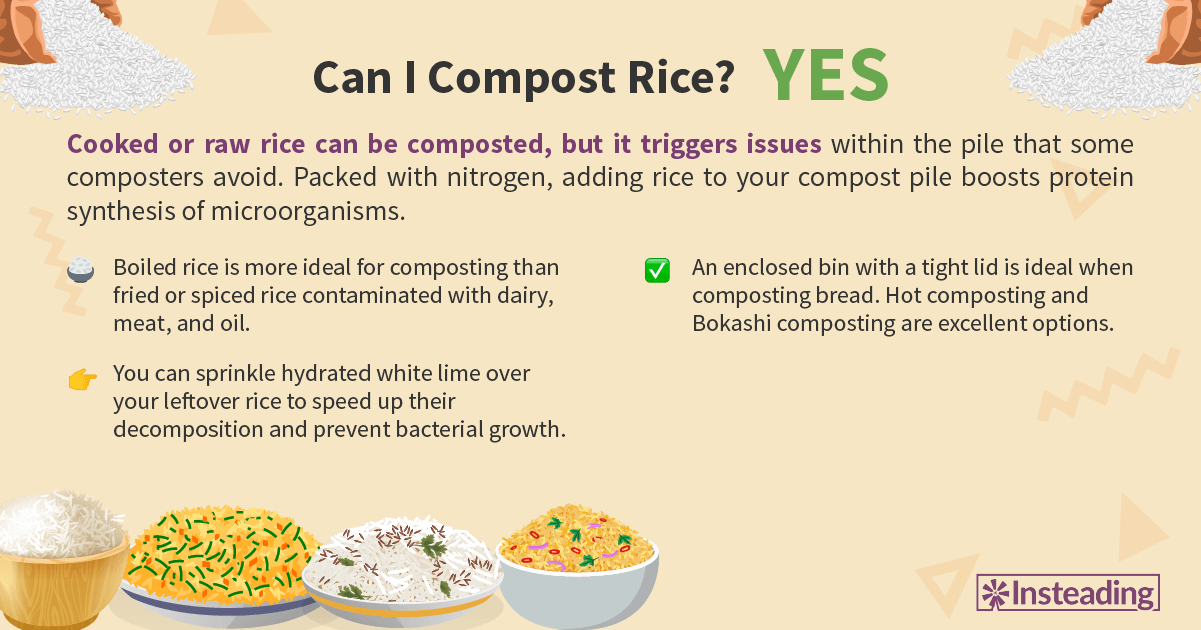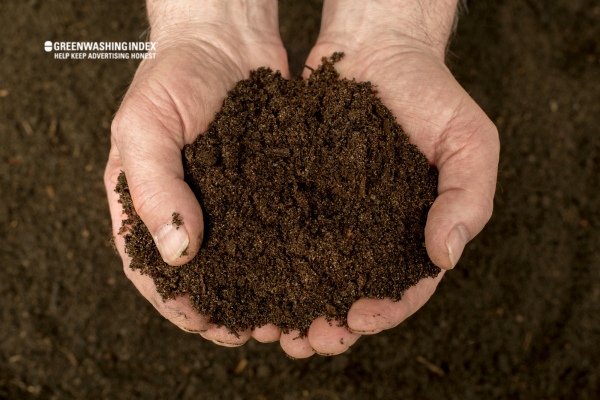Can You Compost Rice? Discover the Best Practices and Tips for Composting Rice Effectively

Composting is an excellent way to reduce kitchen waste and enrich your garden soil. However, not all food scraps are created equal when it comes to composting. One common question among eco-conscious homeowners is whether rice can be composted effectively. Rice, both cooked and uncooked, can potentially contribute valuable nutrients to your compost pile, but it also comes with specific considerations and best practices. In this article, we will explore the benefits and challenges of composting rice, along with essential tips to ensure that your composting process remains balanced and successful.
Can You Compost Rice?
Yes, you can compost rice, but there are some important considerations to keep in mind. Rice is a high-carbohydrate food that can be composted, but it is best to do so in moderation. When adding rice to your compost pile, ensure it is mixed well with other organic materials to promote proper decomposition and avoid attracting pests. Both cooked and uncooked rice can be composted, but it is advisable to avoid large quantities of cooked rice that could lead to a slimy or smelly compost pile. Instead, use rice as a supplemental material along with a balance of green and brown compost ingredients to maintain aeration and improve the overall health of your compost.
Benefits of Composting Rice
Composting rice offers several benefits, including enhancing the nutrient content of your compost. As rice breaks down, it contributes valuable nitrogen, carbon, and other essential elements that enrich the final compost. Moreover, by composting rice instead of tossing it in the trash, you help reduce waste and support environmental sustainability by returning organic matter to the soil.
Types of Rice Suitable for Composting
Both cooked and uncooked rice can be added to your compost, but each has its own considerations. Uncooked rice is drier and breaks down more slowly, while cooked rice contains moisture, which can speed up decomposition. However, it is crucial to limit the addition of cooked rice to avoid attracting unwanted pests, such as rodents or insects. Mixing cooked rice with other compost materials helps prevent clumping and ensures a balanced compost blend.
Best Practices for Composting Rice
To compost rice effectively, follow best practices like chopping or breaking up clumps of rice to promote faster decomposition. It is also essential to mix rice with a variety of other materials; for instance, pairing it with green materials like grass clippings or vegetable scraps enhances nitrogen content, while combining it with brown materials like dry leaves or straw adds carbon. This balance is crucial for maintaining an active compost pile and preventing odors.
Avoiding Pests When Composting Rice
When composting rice, prevention of pests is paramount. Cooked rice can attract animals, so it's crucial to cover it well with other compost materials. Using a compost bin with a lid can help deter rodents and insects. Additionally, regularly turning the compost pile enhances airflow and helps maintain a temperature that can eliminate pathogens and deter pests from settling in.
Alternatives to Composting Rice
If composting rice isn't feasible or if you find it difficult to manage, there are several alternatives. You can consider feeding rice to animals like chickens, as they can digest it well. Additionally, using rice as a food source for microorganisms in a controlled fermentation process can also be an option. For those concerned about compost quality, incorporating rice into your garden soil directly or using it as mulch can help retain moisture and suppress weeds.
| Type of Rice | Suitable for Composting? | Considerations |
|---|---|---|
| Uncooked Rice | Yes | Break into smaller pieces for faster decomposition. |
| Cooked Rice | Yes | Limit quantity to prevent pest attraction; mix well. |
| Brown Rice | Yes | Rich in nutrients; consider moisture content. |
| White Rice | Yes | Can attract pests; control quantity added. |
| Rice Mixed with Other Foods | Yes | Mix with greens and browns for balance. |
Is raw rice good for compost?

Raw rice can indeed be added to compost, but there are important considerations to keep in mind regarding its composition and potential impacts on the composting process.
See also:
Raw rice is primarily made up of carbohydrates, which can serve as a source of energy for microbes in the compost pile. However, certain factors need to be addressed to ensure it contributes positively to the composting process.
Here are some key points to consider when adding raw rice to compost:
1. Attracting Pests: Raw rice may attract pests such as rodents and insects if not managed properly. It's essential to balance its inclusion with other compost materials to minimize this risk.
2. Moisture Absorption: Rice can absorb a significant amount of moisture, which could lead to uneven moisture levels in the compost. Ensure that the compost pile remains adequately moist but not waterlogged.
3. Microbial Activity: The addition of raw rice can enhance microbial activity due to its high carbohydrate content. However, it's crucial to combine it with nitrogen-rich materials to promote healthy decomposition.
4. Decomposition Rate: Raw rice may decompose more slowly than other compostable materials. To accelerate the breakdown process, chop or process the rice before adding it to the compost.
5. Balance of Ingredients: It's essential to maintain a balanced ratio of 'greens' (nitrogen-rich) and 'browns' (carbon-rich) materials in your compost. Integrating raw rice should be done thoughtfully to achieve this balance.
Advantages of Adding Raw Rice to Compost
Raw rice offers several benefits when incorporated into compost.
- Carbon Source: Raw rice serves as a carbon-rich material that can help achieve the ideal carbon-to-nitrogen ratio.
- Microbial Food: It provides a food source for beneficial microbes, which aids the decomposition process.
- Improved Aeration: The granular structure of rice can improve airflow in the compost pile when mixed properly.
Potential Drawbacks of Using Raw Rice in Compost
Despite its benefits, there are drawbacks to consider when using raw rice.
- Rodent Attraction: Raw rice can attract rodents, which may undermine your composting efforts and lead to other pests.
- Decomposition Delays: The breakdown of raw rice may be slower than other organic materials, requiring careful management.
- Moisture Control Issues: As raw rice absorbs moisture, it can lead to uneven moisture distribution in the compost pile.
Best Practices for Composting Raw Rice
To effectively compost raw rice, follow these best practices.
- Chop or Process Rice: Breaking down the rice can speed up decomposition and help integrate it into the compost better.
- Combine with High Nitrogen Materials: Pair raw rice with materials like grass clippings or food scraps to balance carbon content.
- Monitor Moisture Levels: Regularly check the moisture levels of your compost and adjust as needed to ensure optimal decomposition.
Alternatives to Raw Rice in Compost
If you're hesitant about adding raw rice to your compost, consider these alternatives.
- Cooked Rice: While it can also attract pests, cooked rice is softer and may decompose more quickly.
- Grains and Cereals: Other grains, such as oats or barley, can provide similar benefits without the same concerns as raw rice.
- Vegetable Scraps: These are excellent sources of nitrogen and can readily decompose, enhancing your compost's nutrient content.
How to Maintain a Balanced Compost Pile with Raw Rice
Maintaining balance in a compost pile that includes raw rice requires attention to several factors.
- Ratio of Ingredients: Aim for a carbon-to-nitrogen ratio of roughly 30:1 by balancing raw rice with nitrogen-rich materials.
- Regular Turning: Turn the compost pile frequently to ensure even decomposition and aeration, helping to break down rice effectively.
- Observation: Regularly inspect the compost for moisture and temperature levels, making adjustments to aid decomposition speed.
Will rice decompose in soil?


Yes, rice will decompose in soil. When rice is added to the soil, it goes through a natural biodegradation process facilitated by microorganisms like bacteria and fungi. These organisms break down the organic matter in the rice, transforming it into simpler compounds that plants can use. This process is influenced by several factors, including the type of rice, environmental conditions, soil composition, and the presence of moisture.
The decomposition rate can vary, but typically, cooked rice decomposes faster than uncooked rice due to its higher moisture content and the presence of sugars and starches. Conversely, uncooked rice may take a longer time to break down completely.
Factors Affecting Decomposition Rate
Several factors influence the rate at which rice decomposes in soil:
- Moisture Levels: Adequate moisture is essential for microbial activity, hence affecting how quickly rice breaks down.
- Temperature: Warmer temperatures typically accelerate decomposition, while cooler temperatures can slow it down.
- Soil Composition: Soils rich in organic matter and nutrients often promote faster breakdown.
Microbial Activity in Decomposition
Microbial life plays a critical role in the decomposition of rice in soil:
- Bacteria: These microorganisms are primarily responsible for breaking down organic matter, including rice.
- Fungi: They assist in the decomposition process by breaking down tougher substances, complementing the action of bacteria.
- Soil Invertebrates: Creatures like earthworms further aid in decomposition by breaking down rice into smaller particles, enhancing microbial access.
Environmental Conditions for Decomposition
Decomposition is highly sensitive to environmental conditions:
- Oxygen Availability: Aerobic conditions (presence of oxygen) enhance the decomposition process; anaerobic conditions slow it down.
- pH Levels: Soil pH can also affect microbial function; neutral pH levels are typically the most conducive to decomposition.
- Climate: Local climate conditions, such as rain and sunlight, can significantly impact the decomposition rate of rice.
Comparing Rice with Other Organic Materials
Rice decomposes differently compared to other organic materials:
- Vegetable Scraps: Generally decompose faster than rice due to higher moisture and nutrient content.
- Wood Chips: Take much longer to decompose than rice, requiring specialized microbial action.
- Grass Clippings: Similar to rice, they decompose quickly but may release nutrients at a different rate.
Potential Benefits of Decomposed Rice in Soil
Decomposed rice can have several benefits for soil health:
- Nutrient Addition: Provides essential nutrients such as nitrogen, phosphorus, and potassium to the soil.
- Soil Structure Improvement: Enhances soil aeration and water retention capacity, improving overall soil structure.
- Microbial Diversity: Enhances microbial diversity in the soil, fostering a healthier and more resilient ecosystem.
Questions from Our Readers
Can you compost cooked rice?
Yes, you can compost cooked rice, but it should be done carefully. Cooked rice can attract pests if not managed properly, so it is best to mix it with other compost materials and ensure that it is well-aerated in your compost pile.
Is uncooked rice suitable for composting?
Yes, uncooked rice can be composted, but it is recommended to do so in moderation. Uncooked rice may sprout and create unwanted growth in your compost, so mixing it with a variety of other materials helps to mitigate this risk.
See also:
What types of rice should be avoided in compost?
You should avoid composting rice that has high amounts of oils or seasonings, such as fried rice or rice mixed with sauces. These ingredients can create odors and attract pests, making your compost pile less effective and more challenging to manage.
How should you add rice to a compost pile?
To add rice to your compost pile effectively, ensure that it is mixed well with carbon-rich materials like leaves or straw. This will help maintain a good balance of nitrogen and carbon, promoting faster decomposition and preventing any odor issues.

If you want to read more articles like Can You Compost Rice? Discover the Best Practices and Tips for Composting Rice Effectively, we recommend you check out our Compost category.
Leave a Reply
Related Articles